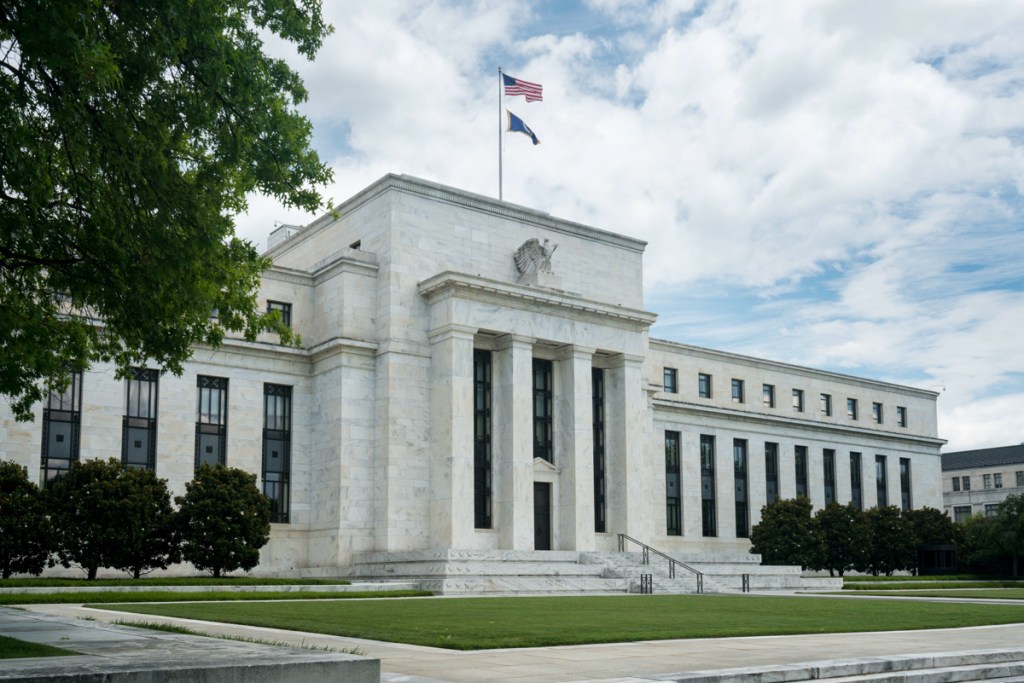The Federal Reserve’s (Fed) efforts to beat back inflation with its monetary tools have already shifted the winds in the secondary market for mortgage-backed securities (MBS).
The Fed’s continuing effort to wind down its $2.7 trillion MBS portfolio helps fuel widening interest-rate spreads in the MBS market by creating additional MBS supply to be absorbed by investors.
That increased supply, in turn, puts downward pressure on bond prices while expanding yields for investors, who will seek higher coupons on new issuance. Left unchecked, those dynamics can make it much harder for issuers to execute MBS securitization deals at desired margins, particularly in the current rising-rate environment.
Added MBS supply is not really a concern, however, according to some market experts — given the MBS market is very liquid. Experts are convinced there will be buyers, even if MBS supply expands.
Foreign investors represent one large bucket of MBS buyers who could step up to absorb additional MBS as the Fed sheds its holdings. On that front, according to data from the U.S. Treasury Department, investors from Asian nations lead the charge when it comes to current holdings of “agency” MBS, issued by government-sponsored enterprises (GSEs), such as Fannie Mae and Freddie Mac, or by Ginnie Mae, which is part of the Department of Housing and Urban Development.
MBS are issued through private “non-agency” entities using the so-called “private-label market,” as well as via the agency channel. The latter, however, accounts for about 94% of all residential MBS issuance in the country. MBS are created by issuing bonds backed by pools of mortgages.
How new solutions are reinventing secondary market access for local lenders
The secondary market is providing a prime opportunity to pursue better margins, more competitive rates and increased profitability.
Presented by: Maxwell
Three Asian nations in particular — China, Taiwan and Japan — currently are the top holders of agency MBS. And, it appears, foreign investors in general have the potential to up their game in the MBS market.
“Recently we commented on the potential for various investor market segments to increase their holdings of MBS as the Federal Reserve winds down its portfolio,” according to a recent report from mortgage-data analytics firm Recursion. “An interesting category is foreign investors.
“At the end of 2018, when the Fed initiated its QE [quantitative easing] program, foreign investors held about 17% of outstanding MBS, and this has fallen to a little less than 12% at present. Most of the decline occurred in the wake of the global financial crisis when mortgage-related securities were revealed to be riskier than generally believed.”
As of March, foreign investors from across the globe owned $1.15 trillion in U.S. agency bonds, which are securities issued by the GSEs and other U.S. government agencies, excluding the U.S. Treasury. The bulk of U.S. agency bonds are MBS.
Figures from the Treasury Department in March showed Asian nations account for $813.2 billion of U.S. agency bond holdings, or nearly 71% of the total held by all foreign investors. Foreign investor MBS holdings in three nations accounted for $712.7 billion of the total for all Asian countries, or nearly 88%.
Those three nations, again, with their March MBS holdings, were Japan, $259.8 billion; Taiwan, $233.3 billion; and China, $219.6 billion, according to Treasury Department figures.
Although China ranked third in March among the three Asian nations in terms of U.S. agency bond holdings by foreign investors, it ranked as the largest net purchaser of bonds for that month, at $18.8 billion. China was followed by Taiwan, at $3.9 billion in net purchases; next was Japan — investors from which sold $494 million more U.S. agency bonds than they purchased in March.
“A tentative conclusion is that so far, neither inflation risk or house price risk or heightened geopolitical risk is leading to a wholesale exit from the MBS market on the part of foreign investors,” the Recursion report notes.
For now, the Fed is not purchasing new MBS to hold in its portfolio, and it also is allowing a portion of its existing portfolio to run off its books as those securities mature.
“They’re going to let their mortgage-backed security portfolio prepay without being reinvested, and there will be a cap of $35 billion [a month] starting at half that for the next three months,” said Seth Carpenter, chief global economist at Morgan Stanley, during a recent presentation at the Mortgage Bankers Association’s (MBAs) Secondary and Capital Markets Conference & Expo in New York City.
Regardless of how the Fed proceeds in shrinking its MBS portfolio, however, Mike Fratantoni, chief economist for the MBA — who also spoke at the MBA conference held in mid-May — expressed confidence the MBS market will weather the storm. He described it as the “second most liquid market in the world.”
“There are buyers domestically and abroad for mortgage-backed securities,” he added.





